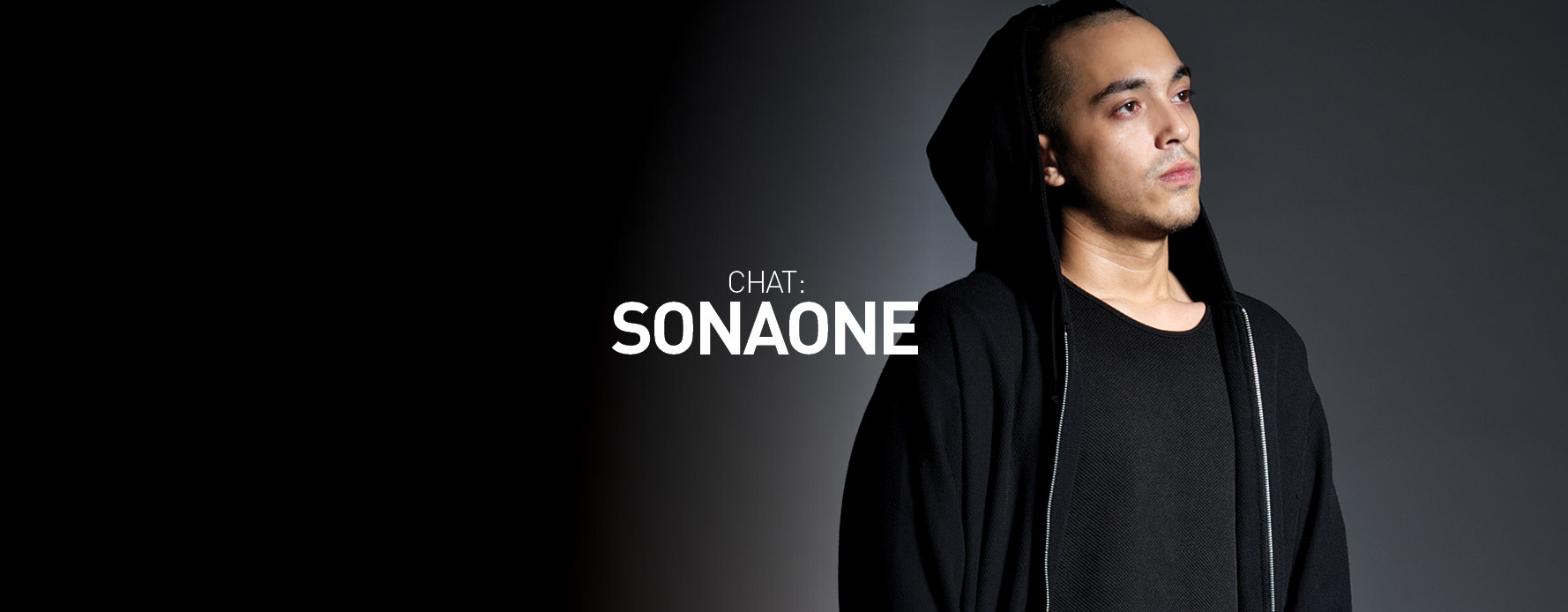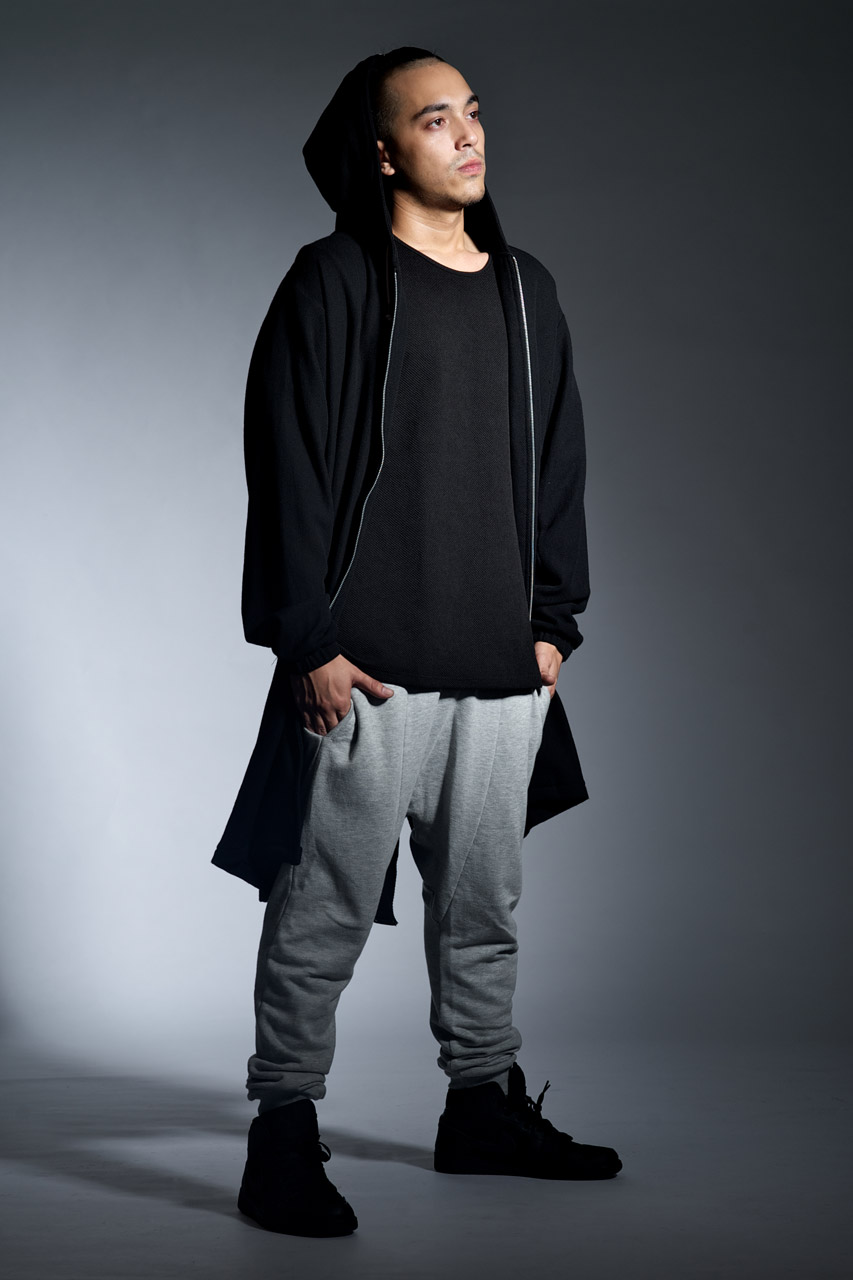SonaOne is a Smart One
 Thirsty for JUICE content? Quench your cravings on our Instagram, TikTok and WhatsApp
Thirsty for JUICE content? Quench your cravings on our Instagram, TikTok and WhatsApp

SonaOne’s love for hip hop began after he found comfort in the genre during not-so-bright and sunshiny days. His participation in this respected culture was first with stencil and spray cans, but after witnessing the almighty Eminem and Dr. Dre collaboration back in 2000, it progressed to pen and paper instead. Then, acknowledging his knack for producing and writing lyrics, the now 27-year-old began churning tracks that dominated mainstream radio play – to the point of winning Best Song at Anugerah Industri Muzik for ‘No More’, the first English track to have won the category. Besides rapping and being a graff-writer, he has also been busy hosting the second season of Hip Hoppin’ Asia and in the midst of finishing off his debut album Growing Up Sucks, which is to be released in early 2016. With top billing at the forthcoming Raising the Bar Festival ’16, JUICE caught up with SonaOne to discuss all things hip hop, his fluency in Bahasa Malaysia, and the album that changed his life.
Disclaimer: Hip hop is mentioned a lot in this interview.
How was your moniker created?
Originally, there was no basis to the name SonaOne, it came about accidentally as I was trying to improve on a previous name I had during my days as a graffiti writer. I used to write names like Star, Tsigane, and SnoeOne – so one day as I was trying out a cursive one-line attempt at writing ‘Snoe’, instead what came out was Sona, and I thought that looked and sounded cool. So I kept it as my official tag-name. It wasn’t until the local hip hop community began calling me Sona by name that it really stuck.
You hosted the second season of Hip Hoppin’ Asia (HHA), how did you land that role? Did Joe pass you the torch or did you have to go for an audition?
Joe was really busy promoting his first Bahasa Malaysia album Havoc at the time, so he suggested that I give hosting HHA a go. I had never done any form of hosting on camera before, so yes, I did have to go in for a screen test. We went out for several pre-shoots for me to get comfortable working with the production team and to be at ease in front of the camera. I gotta give props to all TV hosts worldwide because it’s not an easy job; especially if you’re not used to it!
But was it easy to be a host for a travel show since you were a tour guide for three years?
It’s similar in a few ways, but ultimately both are different. In terms of public speaking, busy itineraries, presentation of subjects, and storytelling, my experience as a tour guide definitely benefited me. But the real difference was that instead of guiding people through my country that I know and love, I was taking viewers on my own adventure into the unknown, discovering new things at the same time as the audience would.
You linked up with a few local rappers in the respected countries that you visited, what was their hip hop community like in comparison to ours?
The beautiful thing about hip hop is that anywhere you go, it’s different and unique, but fundamentally it’s all the same. This culture is a reflection of its environment and surroundings and it is easily identifiable. Our community is as alive as in the ones I’ve discovered around the continent, and in all these countries, hip hop has embraced their local identities and in turn the masses are starting to identify with the genre. Hip hop has secretly taken over the world! (Laughs)
What sort of lessons did you learn from going to those countries?
Never forget your roots and respect your peers; hip hop speaks for those who can’t.
What do you think of our scene though? Be honest.
I think our scene has come really far. Hip hop is everywhere here. Some call it a comeback, but if you ask me, it never left. The rise of social media and advances in technology have made the music more accessible, and in turn there are so much new talent emerging from all corners. On top of that, we have learnt to embrace our languages with more emcees choosing to rap in their native dialects over English. Though there’s still room for improvement and development in certain areas, I strongly believe that our scene is comparable to go up against other international/regional hip hop giants.
How would you describe your sound?
I think the best way to describe my sound is as being a sonic image of time. By that I mean I use sounds to help describe a moment or a topic of an event that happened to me or affected me in some way, like musical paintings of timely observations of some sort. I enjoy fusing electronic and organic elements, and still sample a whole lot although I avoid conventional chop-and-loop methods. Detailing is important to me, I like to add weird little things to my music that might not even be noticed until pointed out, but once you’ve taken notice, it brings a whole new dimension to the listening process, thus encouraging the listener into visualising what is heard.
Was there anyone that influenced your style or was it something that just came to you?
I am constantly inspired by what happens around me. When I started out making music, I was heavily influenced by producers like J Dilla, Dr. Dre, and DJ Premier, and rap-wise it was artistes like Phonte, Elzhi, and Promoe that got me interested in the art of lyricism. I was already a huge fan of rap prior to that, being the only kid at school listening to Biggie, Pac, Big Pun, and Nas, so in a way that set a platform for me to find my own path lyrically and style-wise. To be honest, I don’t even listen to anything these days, my homie DJ Biggie is the only one updating me on what’s new in the clubs or in the streets. I’m trying not to focus too much on what other people are putting out so that I can focus on making my music sound like no one else’s, but at the same time as relevant as everyone else’s.
As an artiste, your privacy somewhat becomes public property and your fans are always interested to know what you’re doing, and you have over 80k followers on Instagram, do you ever feel overwhelmed when you post on social media?
Sometimes it can get a little overwhelming, but I don’t let it distract me from what’s important. I love all my fans and have nothing but respect and appreciation for them because they are keeping my music alive. Social media is a genius tool to stay connected with your fans!
How do you separate your personal life from your work then?
By separating them! (Laughs) It’s a little hard sometimes because often the two intertwine. All you gotta do is do your work and keep your mind focused on what it needs to be.
What got you interested in hip hop? Was there an album you listened to that changed your life and when did your ‘metamorphosis’ into a rapper take place?
I grew up being exposed to hip hop from a young age. Thing is, I didn’t know what “hip hop” was. It wasn’t until I got involved in graffiti that I discovered that this artform was part of a bigger culture called “hip hop” which included DJing, b-boying, and emceeing. It was love at first sight; I felt like I knew this culture my whole life and immediately identified with it. I dabbled with a bit of everything, did a bit of DJing, started breakdancing, and eventually tried to rhyme a little. It wasn’t until I saw Eminem — for the very first time — and Dr. Dre performed ‘Forgot About Dre’ at the 2000 American Music Awards that my jaw dropped. A white boy rapping like that?! I swear to G as soon as that performance ended I went to my room and started writing a rap. I didn’t even know who he was until later that year when he dropped ‘The Real Slim Shady’ and that album definitely blew my mind. During the same year, Too Phat blew up back home, and so the combination of “White Boy Rap God” and “Malaysian rap duo blowin’ up” was the spark to the flame that still burns today; I’ve been writing rhymes ever since.
Which album that influenced you would you recommend someone to listen to and why.
Wow. This is a hard one. If it were a hip hop album, it would be J Dilla’s Donuts without question. If it were non-hip hop, it would have to be Daft Punk’s Discovery. That album was the first vinyl record I ever bought, and listening to it today, it still sounds as relevant and stands up to today’s calibre and standards.
How’s your Bahasa Malaysia vocabulary currently? We heard you were having a tough time with it.
(Laughs) It’s slowly improving. Definitely much better than a few years ago – thanks for asking! I’m on an etymologist phase with [Bahasa] right now, dissecting the root words and origins to get a better understanding and also to remember easier. Did you know that the Bahasa word for woman (‘wanita’) is a straight up evolution of a Portuguese/Spanish name (‘Juanita’)?
Nope, can’t say we did. We learn something new everyday. Kanye said rap is the new rock’n’roll – hip hop is garnering more attention than other genres at the moment, why do you think that is?
Hip hop has always been a culture of tastemakers. From the shoes people wear to the words people use, hip hop has influenced the world in ways some of us don’t even realise. I think in the era we live in, with social media and everybody wanting to know what everyone else is doing right now, people connect with hip hop more because it is always current, and a direct expression of ‘Right Now’. Hip hop has a tendency to approach topics that other genres wouldn’t, and this form of outspoken-ness resonates with today’s era.
No wonder Yeezy is the biggest rock star of them all. There was a point in your life where you felt you weren’t going to be accepted and that you couldn’t fit in anywhere, but you’ve grown and achieved so much since that time, and there’s only more for you to accomplish. What advice would you give someone that’s in the same situation as you were?
Always set deadlines, never set limits. Work hard but soften up on life, don’t sleep on your success, so dream big and accomplish bigger cause you only really wake up when you’re gone.
SonaOne is set to play at Raising the Bar Festival ’16 on Saturday 9 January ’16. SonaOne’s debut album Growing Up Sucks is set for an early 2016 release via Kartel Industries/Sony Music Entertainment (Malaysia).
www.facebook.com/itssonaone
www.instagram.com/itssonaone
www.soundcloud.com/itssonaone

 Get Audio+
Get Audio+ Hot FM
Hot FM Kool 101
Kool 101 Eight FM
Eight FM Fly FM
Fly FM Molek FM
Molek FM